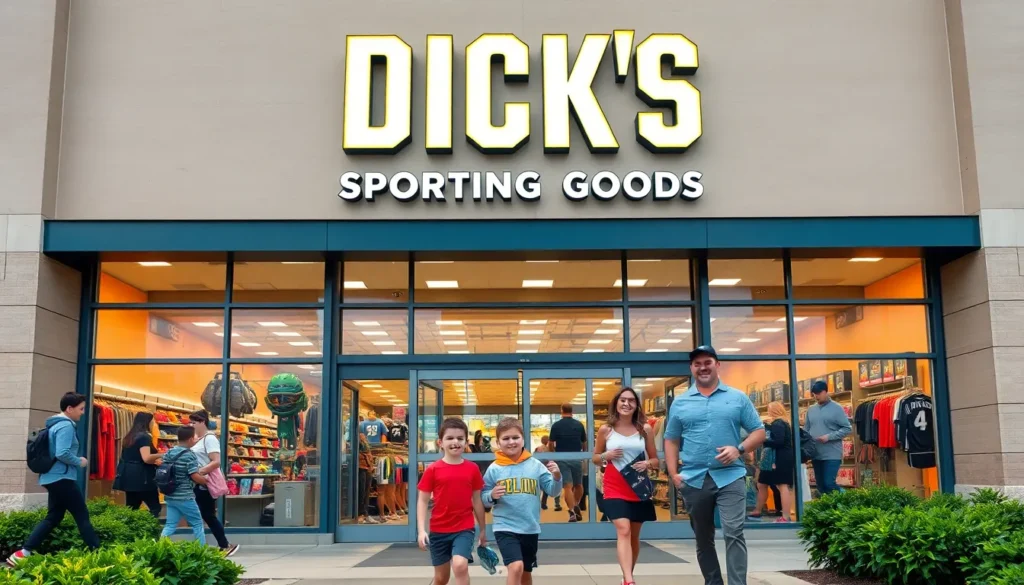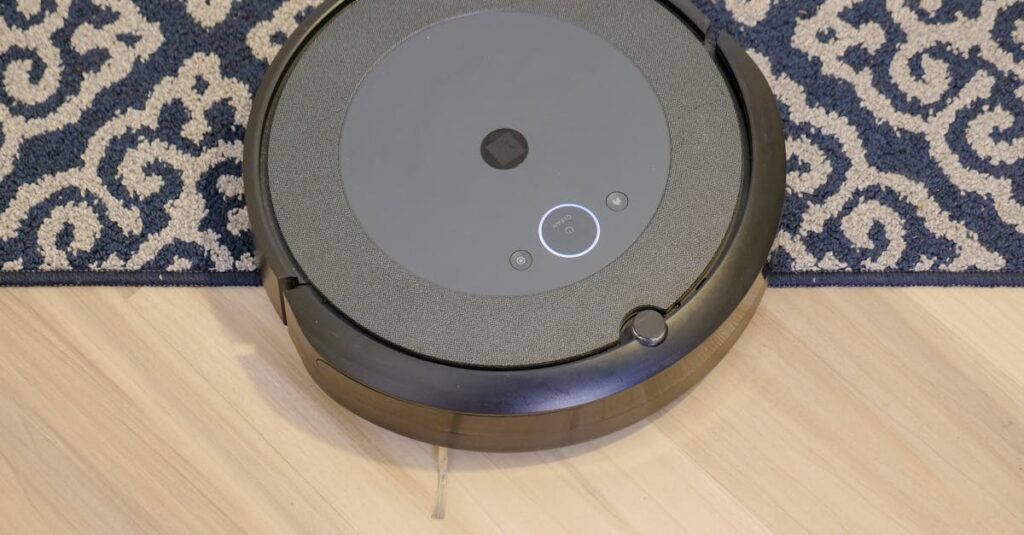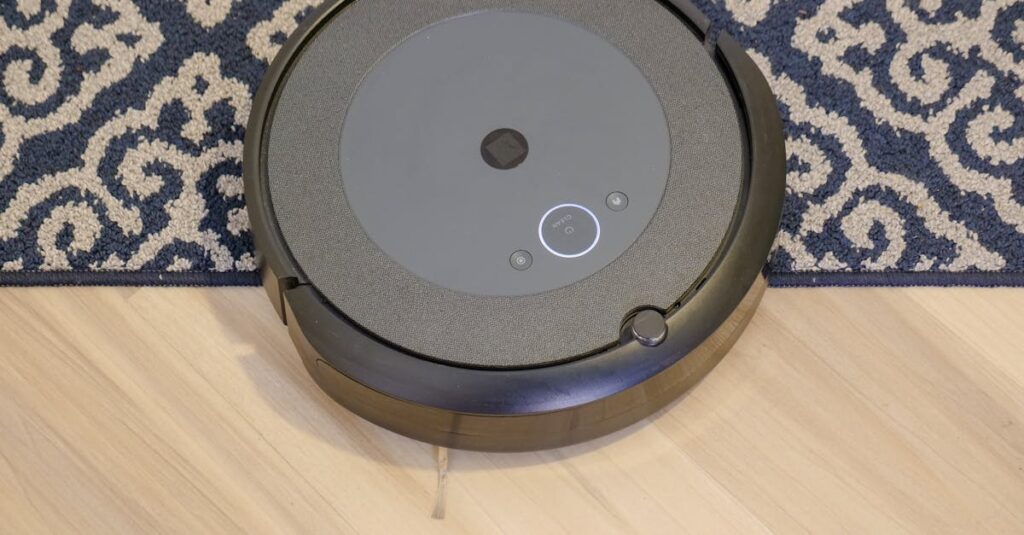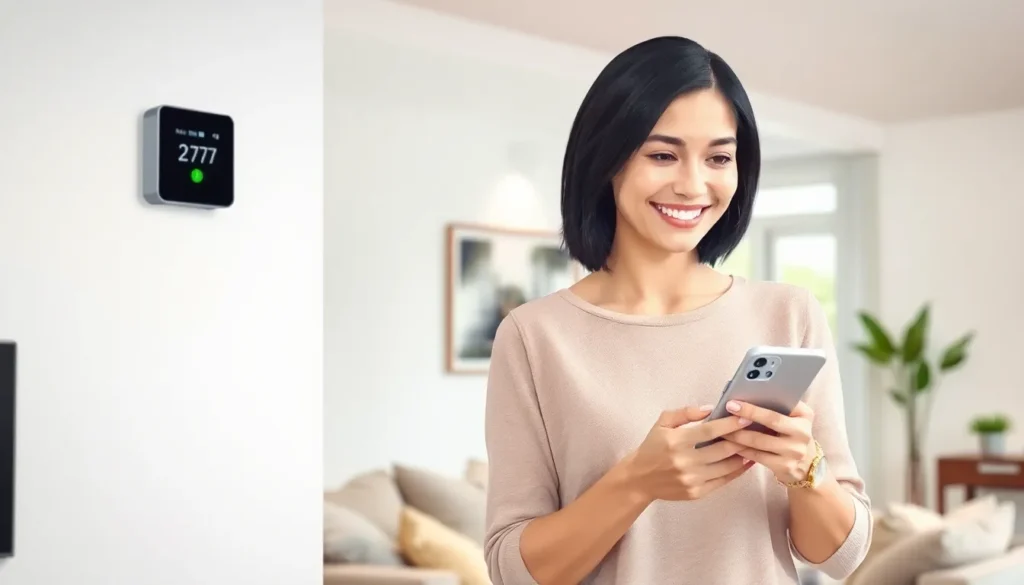Table of Contents
ToggleIn the bustling streets of New York, where every square foot counts, smart homes are redefining urban living. Imagine controlling your lights, thermostat, and even your coffee maker with just a tap on your smartphone. It’s like living in a sci-fi movie, minus the flying cars and questionable fashion choices.
Smart home technology isn’t just a luxury; it’s a game-changer for New Yorkers seeking convenience and efficiency. With the hustle and bustle of city life, who wouldn’t want to automate mundane tasks? From energy savings to enhanced security, these gadgets are the ultimate sidekicks for city dwellers. So, buckle up as we explore how smart homes are transforming the Big Apple into a tech-savvy paradise.
Overview of Smart Homes in New York
Smart homes in New York exemplify the intersection of technology and urban living. Residents benefit from remote management of devices, enhancing convenience and security. Individuals control lighting, heating, and security systems using smartphones or voice commands, providing seamless interactions within their living spaces.
The integration of smart devices generates significant energy savings, an important consideration in the energy-intensive environment of the city. For instance, smart thermostats can reduce energy consumption by up to 15 percent. This helps ease the financial burden of high utility bills, making smart homes an attractive option for city dwellers.
Security remains a top priority for New Yorkers. With smart cameras and alarm systems, homeowners enjoy peace of mind. Some devices offer real-time alerts, enabling residents to monitor their homes from anywhere. The combination of convenience and safety makes smart technology appealing to families and individuals alike.
Smart home trends reflect a growing demand for interconnected systems. The implementation of voice-activated assistants streamlines everyday tasks, improving quality of life. Different people now find comfort in automated routines, from adjusting lights and thermostats to managing entertainment systems.
Local businesses also respond to the rise of smart homes. Numerous companies offer installation and support services, creating job opportunities within the tech industry. This trend fosters innovation and attracts new talent to New York, reinforcing its reputation as a hub for technological advancement.
Smart homes enhance urban living by prioritizing convenience, energy efficiency, and security. The evolution of smart home technology continues to shape the landscape of New York, encouraging a future where homes are not just places to live but integrated, intelligent environments.
Popular Smart Home Technologies
Smart home technologies enhance urban living in New York, providing convenience and efficiency. Various systems cater to different needs, improving daily life for residents.
Smart Security Systems
Smart security systems play a crucial role in home safety. Many residents utilize smart cameras and video doorbells, offering real-time monitoring and alerts. These devices allow for remote access, enabling homeowners to check their properties while away. Advanced alarm systems further ensure security, notifying users of any unusual activity. In New York, where safety is paramount, these technologies offer peace of mind and a significant sense of control over one’s environment.
Smart Lighting Solutions
Smart lighting solutions enhance both comfort and energy efficiency. Many homeowners opt for smart bulbs that adjust brightness and colors according to specific needs. These bulbs can be controlled via smartphones, providing the flexibility to set schedules or create mood lighting. Energy savings become apparent with smart lighting; studies indicate a reduction in energy consumption by up to 30 percent. In a city like New York, where energy costs remain high, these solutions provide both practicality and aesthetic appeal.
Smart Climate Control
Smart climate control systems significantly improve indoor comfort. Homeowners benefit from smart thermostats that learn preferences and adjust accordingly, often achieving energy savings of up to 15 percent. Many systems allow remote management, letting users control temperatures from anywhere, ensuring homes remain comfortable. Additionally, smart ventilation ensures optimal air quality, a critical factor in urban environments. These features contribute to enhanced living experiences for New Yorkers, reflecting the growing trend toward energy-efficient home solutions.
Benefits of Smart Homes
Smart homes offer various advantages for New Yorkers, enhancing daily living through advanced technology and automation.
Increased Energy Efficiency
Smart home systems optimize energy use, providing real-time data on consumption. Energy-efficient smart thermostats adjust heating and cooling based on user habits, cutting energy costs by up to 15 percent. Smart lighting adjusts brightness and color, leading to savings of around 30 percent on electricity bills. Monitoring energy use through mobile apps allows homeowners to make better decisions. Additionally, automated systems turn off devices when not in use, further reducing wasteful consumption.
Enhanced Security Features
Enhanced security is one of the key benefits of smart homes. Smart cameras and alarm systems monitor real-time activities, sending alerts directly to users’ smartphones. Video doorbells allow for remote communication with visitors, ensuring secure entry control. Integration with smart locks enables secure access for family and trusted individuals without needing physical keys. Possessing these advanced security features promotes peace of mind and a safer living environment, crucial for urban dwellers.
Convenience and Comfort
Convenience and comfort improve significantly with smart home technology. Voice-activated assistants control devices hands-free, simplifying daily routines. Smart appliances like coffee makers and refrigerators streamline food preparation with scheduled operations. Homeowners can adjust lighting, temperature, and music settings remotely through mobile apps, creating an ideal atmosphere. Customizable settings for individual preferences enhance comfort, allowing each member of the household to personalize their experience.
Challenges Facing Smart Homes in New York
Smart homes in New York face several challenges that can hinder their growth and adoption.
Technical Issues
Technical challenges frequently arise with smart home devices. Connectivity between various devices can become unstable due to network congestion, especially in densely populated areas. Compatibility issues between different brands may also create complications for users attempting to integrate various systems. Frequent updates and maintenance requirements may frustrate residents who seek user-friendly solutions. Additionally, smart home devices rely heavily on internet connections, and outages can disrupt operation, causing inconvenience.
Cost Considerations
Cost remains a significant barrier for many potential smart home adopters. The initial investment for smart technology can be high, deterring some residents from upgrading their homes. Installation fees can add to the financial burden, especially for extensive systems that require professional setup. Despite long-term savings on utility bills, the upfront costs may overshadow these benefits for some. Incentives or rebates from local governments could help alleviate these financial concerns and encourage more widespread adoption.
Privacy Concerns
Privacy concerns heavily influence the acceptance of smart home technology. The use of cameras and voice-activated devices raises questions about data security and surveillance. Many residents worry about unauthorized access or misuse of personal information collected by smart devices. Data breaches have occurred in various industries, leading to heightened caution when integrating smart technologies. Residents may hesitate to adopt systems without strong privacy protections, limiting the potential for future advancements in smart home solutions.
Future of Smart Homes in New York
Smart home technology is evolving rapidly in New York, bringing new possibilities and advancements to urban living. The future promises further innovation that enhances convenience, security, and energy efficiency.
Emerging Trends
Innovations continue to emerge, reshaping how residents interact with their homes. Integration of artificial intelligence is becoming a standard, allowing systems to learn user habits and optimize settings automatically. Voice activated technology has gained popularity, making interactions seamless and hands-free. Smart home hubs are increasingly connecting various devices, improving interoperability among brands and types. Energy management systems that monitor and adjust consumption in real time not only promote sustainability but also reduce costs. With growing focus on sustainability, eco-friendly devices are being prioritized, appealing to environmentally conscious consumers.
Potential Market Growth
Predictions indicate substantial growth in the smart home market within New York. The increasing adoption of smart devices can be linked to a surge in demand for enhanced security and convenience solutions. Reports suggest that the smart home market will reach over $100 billion globally by the end of 2023. An influx of investments and partnerships among tech companies and local businesses supports this growth, creating a robust ecosystem. Residents are likely to see more competitive pricing as popular products become widely available. Features like energy savings of up to 30 percent further incentivize adoption, making it an attractive option for many households.
Smart homes are revolutionizing urban living in New York City. With advancements in technology, residents can enjoy enhanced convenience, energy efficiency, and security in their daily lives. The integration of smart devices not only streamlines routines but also addresses pressing concerns like energy costs and safety.
As the market continues to grow, the potential for innovation remains vast. Local businesses are stepping up to meet the demand, ensuring that New Yorkers can easily access the benefits of smart technology. While challenges like connectivity issues and privacy concerns exist, the future looks promising. Embracing smart home solutions will undoubtedly shape a more efficient and secure living environment for all New Yorkers.









